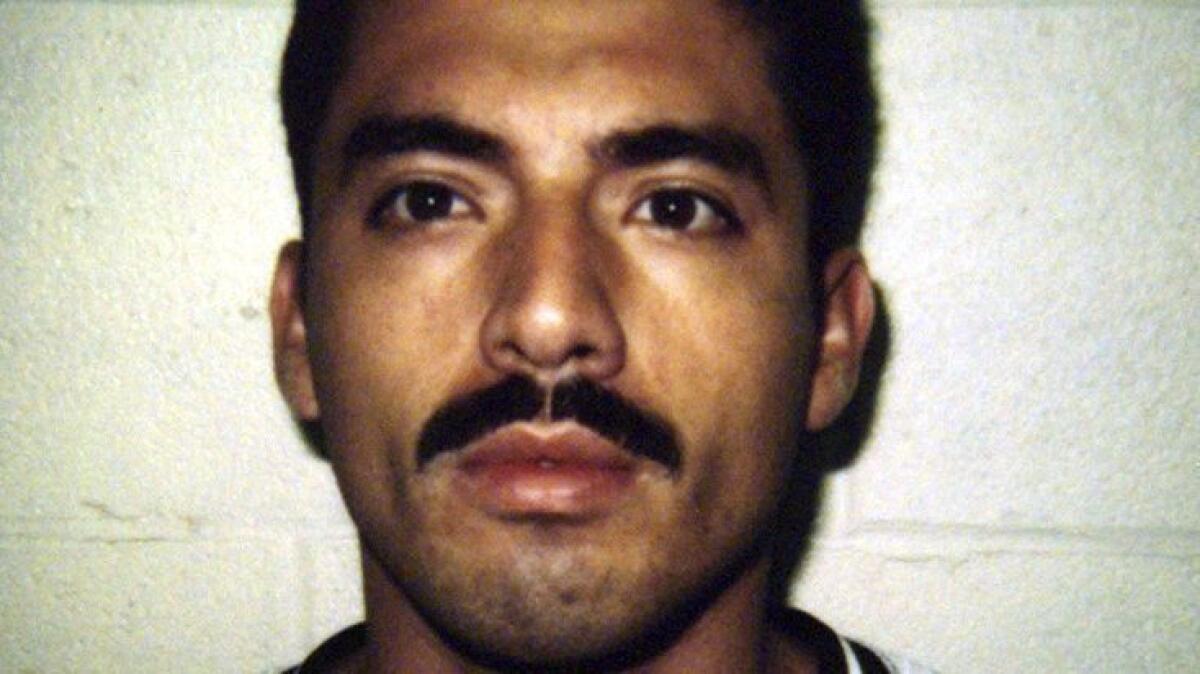Twice-convicted O.C. killer will receive new trial in latest fallout from jailhouse snitch scandal

A man convicted in the 1998 killing of a pregnant woman will receive a new trial after an appellate court concluded that the Orange County district attorney’s office failed to disclose pertinent information about a jailhouse informant, the latest fallout from a years-long controversy embroiling the county’s justice system.
In a 55-page opinion made public late Friday, the appellate court upheld a ruling by Judge Thomas Goethals ordering a new murder trial for Henry Rodriguez, who was twice convicted in connection with the slaying of Jeanette Espeleta and her unborn child.
The ruling is the latest to stem from allegations that the the district attorney’s office and Sheriff’s Department maintained a covert network of jailhouse snitches and repeatedly failed to disclose information about those informants to defense attorneys, violating the constitutional rights of criminal defendants.
A spokeswoman for the district attorney’s office said prosecutors are prepared to retry the case. A pre-trial setting conference is scheduled for Aug. 11. In a previous press release, the district attorney’s office denied it had done anything improper in Rodriguez’s case.
The ruling comes less than two weeks after the Orange County grand jury released a report dismissing as a “myth” claims that sheriff’s and district attorney’s officials ran a secret operation using jailhouse informants to obtain confessions from criminal defendants. The report was hailed as a vindication by the district attorney and sheriff but blasted as a whitewash by several attorneys who have won retrials for their clients in the wake of the allegations about the use of informants.
Espeleta was eight months pregnant with the child of Rodriguez’s friend, who authorities say did not wish to pay child support, when she was killed and her body dumped in Long Beach harbor.
Rodriguez was first convicted of aiding in Espeleta’s slaying in 2000, but an appeals court threw out the conviction based on a Miranda rights violation.
At a second trial in 2006, Michael Garrity, a jailhouse informant, testified that Rodriguez made incriminating remarks about the murder to him while they were housed together in jail. According to Garrity, Rodriguez confessed he had helped dump Espeleta’s body in the ocean and left her as “shark bait.”
Rodriguez’s attorney, James Crawford, argued in court at the time that Garrity’s testimony should be thrown out because he had been acting at the government’s behest as a “planted snitch” during his talks with Rodriguez.
Doing so would have been a violation of a Rodriguez’s right not to be questioned without his attorney present.
Nevertheless, Rodriguez was convicted of murder in the second trial.
In February 2016, Goethals vacated that conviction based on Crawford’s argument that prosecutors failed to disclose important information about Garrity’s background. Rodriguez has remained out on bail since then, according to Crawford.
In Friday’s ruling, a three-justice panel found that the district attorney’s office failed to give the defense information about Garrity’s history of receiving lenient sentences in exchange for providing information on other inmates.
“Information contained in the OCDA’s internal record that Garrity had in fact received consideration on cases in Orange County and that it attempted to withhold this information was material because it implicates the OCDA” in connection with the Sheriff’s Department’s jailhouse informant program, the appellate panel concluded.
Fallout from the snitch scandal is likely to ramp up in the coming weeks. Goethals is overseeing an evidentiary hearing in the case of Scott Dekraai, who confessed to gunning down eight people in a Seal Beach hair salon in 2011.
Much of the information about the controversy has been gleaned from hearings in Dekraai’s case. Allegations about the misuse of informants have repeatedly stalled the penalty phase of Dekraai’s case, and led Goethals to remove the district attorney’s office from the case. The California attorney general’s office is now handling the case.
Orange County Sheriff Sandra Hutchens is expected to testify about the jailhouse allegations in Dekraai’s case later this month.
The U.S. Department of Justice and the state attorney general’s office are also investigating accusations that the district attorney’s office and Sheriff’s Department violated the constitutional rights of defendants through the use of informants.
Times staff writer Christopher Goffard contributed to this report.
Follow @JamesQueallyLAT for crime and police news in California.
More to Read
Sign up for Essential California
The most important California stories and recommendations in your inbox every morning.
You may occasionally receive promotional content from the Los Angeles Times.











